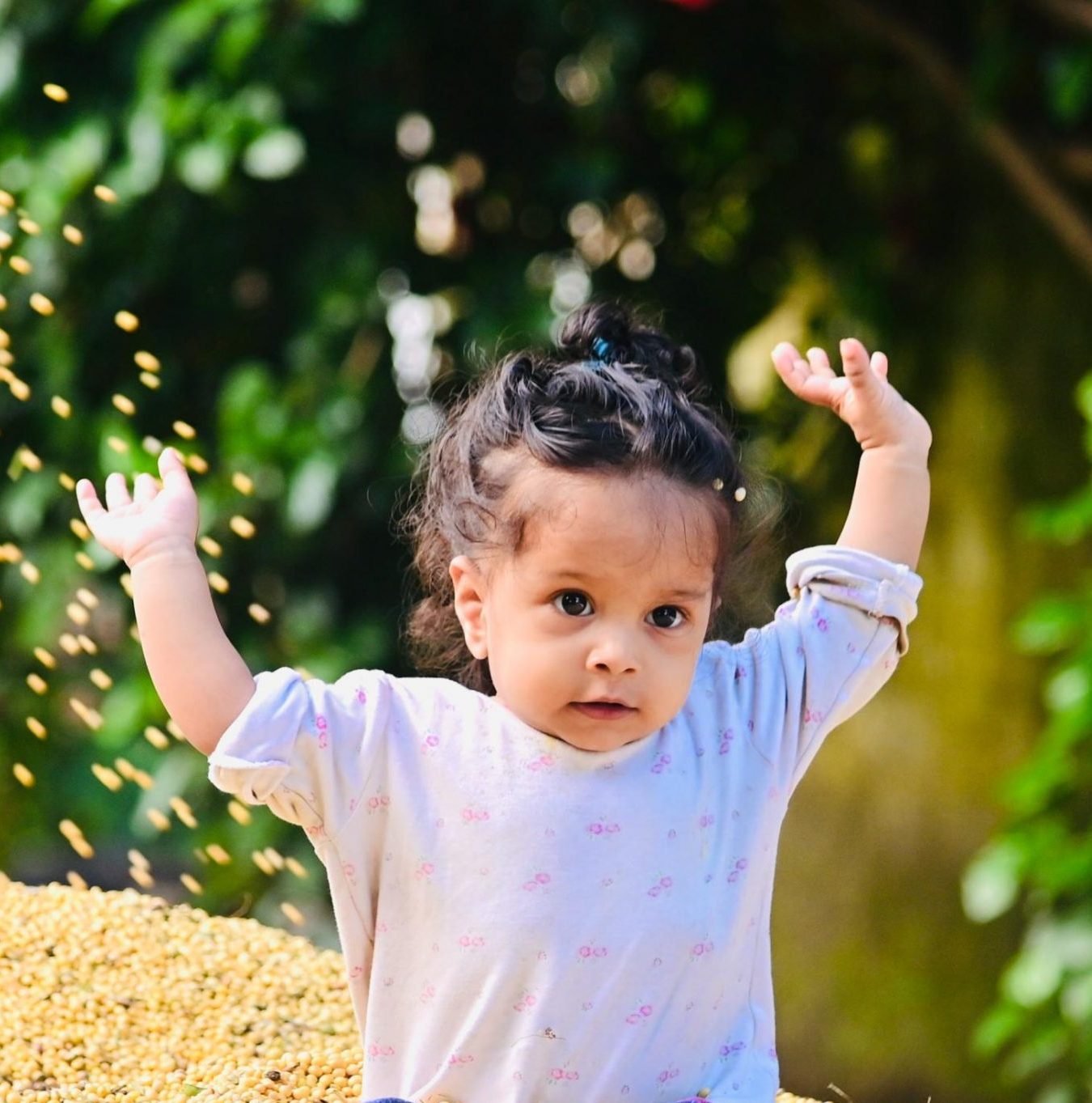Young parents are always looking for ways to boost language development in toddlers. Are you one of them?
One cannot deny that baby language is adorable and very entertaining. The babbling sounds have us all cooing and enjoying ourselves. However cute, we look forward to transitioning from coos and babbles to forming words and sentences. As babies enter toddlerhood, learning to communicate their needs becomes an important milestone to achieve. There is a significant rise in the number of children with speech delays and poor levels of communication. Development of speech and language is an entire study with many professionals ready to help out worried parents in case of any speech delays.
Why are we fretting over baby talk? Because we are preparing our little ones to be confident, develop friendships and relationships, communicate clearly, understand the nuances of schooling and play an active part without hesitations. Here are ten ways to boost language development in toddlers which cover techniques suggested by professionals and parents of children who have the gift of the gab!
Talk Talk & Talk to your toddler!
According to the American Speech Language and Hearing Association, one of the ways to boost language development is you can start talking to your baby right from birth. You can interact with your baby in different ways by using sounds such as ‘Ma Ma’, ‘Da Da’, ‘Ka ka’. It’s pleasantly surprising that children observe syllables’ lip movements repeatedly and even imitate them.
Repeat the sounds and relate to them by pointing to yourself as Mumma, Papa. Hold your palm out to your six months old, and when she waves her palm onto yours, you can repeat the word’ Clap clap’.
Converse with your baby while you bathe and dress them.
Point out to a crow, a dog, or a cow and make respective sounds and see your baby’s button-like eyes widen with interest.
Reading is one of the most efficient ways to boost language skills
Did you know if you read to a child for just 20 minutes each day, they are going to have come across 18,00,000 words in a year compared to a child not read to who comes across only 8000 words in a year? Isn’t this difference quite stark? Reading is one of the best ways to boost language development in toddlers.
There are fabulous children’s books out there with sounds, flaps, finger puppets, board books, and touch and feel books to introduce to your little one. Start as early as you can and benefit from the world of knowledge hidden between those pages.
Yes/No games to get a grasp over new words
Have you watched the Yes/No Super Simple Rhymes? You can watch them with your toddler and pick up cues to incorporate the same lines in your daily hustle-bustle. Saying rhymes is a light-hearted way to boost language development in toddlers. Pose questions like ‘Would you like to visit your friend? Is the flower beautiful? Do you feel funny when I tickle you? Can we take a walk together? Would you like to join me for lunch?’
The toddlers are all ears if you only drop in words often. Their anticipation leads to quick responses. Go on then! Find a friend in your little one.
Repetition of Songs and Rhymes to boost language development in toddlers
Have you ever tried singing a song while brushing your child’s teeth or bathing them? Have you noticed how they calm down while getting dressed if you sing a song? You don’t have to put music on your phone. Instead, you can pick up rhymes related to ordinary activities and sing them aloud. Your child loves your voice. Different sounds lower stress and help to focus on what you are saying barring the unnecessary chaos of the surroundings.
Attention seeking toddler? Help them to speak clearly
Three and four-year-olds cannot stop seeking attention. Pay attention to what they say whenever you can. Get your child’s attention before you talk. Let the communication be two ways. Point out what they are showing you and name the object. Encourage them to pronounce the same word after you. Acknowledge their effort in trying to converse with you. Being an active listener in the baby talks is an effective way to boost language development in toddlers. In the meantime, maintain a journal of how different names are pronounced differently to remind your grown-up child in future.
Drawing and Painting facilitate listening and speaking to boost language development in toddlers
We are never too old to enjoy coloring a picture with our little ones. Pick up those crayons and brushes, sit down with your child, and find your time flying away even before you realize it. The purpose of guiding your child to color or paint is not to make them an artist but to initiate follow-up to questions like What, Where, with ‘You see, here! It also helps him to identify colors and relate to objects around us like a tree, an apple, a spoon etc. Inspire them to explore their senses of touch and speech together. Art for Kids Hub is a channel where an artist dad directs his kids to draw, and his child follows his instructions.
Pretend play to enhance imagination
Five and six-year-olds can benefit immensely from pretend play.
Pretending to be someone like a doctor or a teacher creates a stimulus for forming sentences relevant to the character’s circumstances. Above all, role-playing leads to the discovery of new words to express a need and helps to boost language development in toddlers. For instance, A doctor’s role requires using words like prescription, stethoscope, appointment etc. A teacher’s role demands the usage of words like a timetable, subjects, principal and so on.
Storytelling box with hand puppets to improve speech
Storytelling is a great idea when there are siblings at home too. Entertain the younger child with stories and puppets. At the same time, your older kid can hone their language skills. It becomes a win-win situation. Enact a tale of characters from a book or a movie and encourage the elder one to rehearse the dialogues or recite poems or songs.
Educational or Recreational Trips uplift language skills
Trips to zoos, museums, aquariums, and farms are always memorable. The children acquire knowledge about the world outside of their homes. Prompt your three-year-old to describe the animals they saw in the zoo and enjoy the excitement flooding in. Assign a writing task to your six year old describing the museum visit. You could assist them in giving words to their memories.
Parents are role models for toddlers
Children learn good language, manners, and verbal and non-verbal communication at home before going to school. Setting an ideal example becomes necessary to bring up expressive and receptive children. Explore the world with your child, and you will learn new things along the way too.
If you feel that your child is having difficulty forming words by the time they turn three years old, reach out to the speech therapists and benefit from their guidance to boost language development in toddlers.
Conclusion
To sum up, exceptional language skills are linked with lifelong learning, high confidence levels, awareness of diverse cultures, academic achievements and positive experiences in adult life. Parents’ timely effort today is unquestionably the reason for a happier and more confident child tomorrow.
Also read: Language Delay or Delayed Speech In Children






